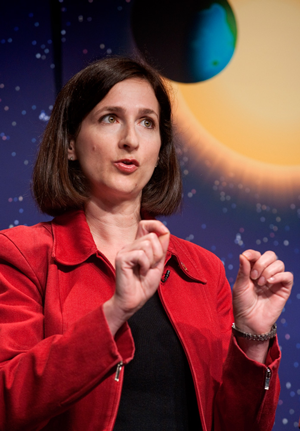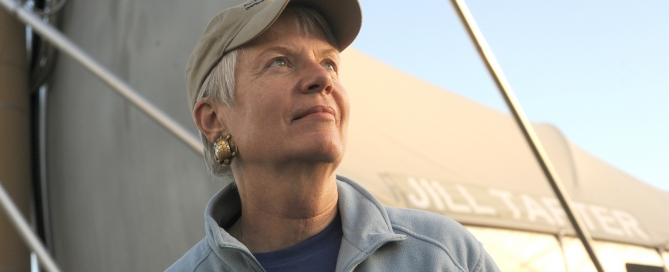Are we alone in this universe? This is a fascinating question. While addressing this question Arthur C. Clark said, “two possibilities exist: either we are alone in the universe or we are not. Both are equally terrifying”.
In 1940 physicist Enrico Fermi posed a question, “if it seems likely the universe may host other life forms, how come we haven’t seen any signs”. This question is known as the Fermi’s Paradox that acknowledges apparent contradiction between high estimates of the probability of the existence of extraterrestrial civilization and lack of evidence for such civilizations. Fermi posed this question in 1940, and in 2014 earthlings still don’t have any evidence that there is life out there.
Dr Jill Tarter holds the Bernard M Oliver Chair for SETI Research at the SETI (Search for Extraterrestrial Intelligence) Institute. Jill Tarter led project Phoenix which studied about seven hundred and fifty nearby star systems. She serves on the management board for the Allan Telescope Array; this is SETI’s new effort to search for extraterrestrial intelligence. She received two public service medals from NASA and was named one of the one hundred most influential people of the world for year 2004 by time Magazine.
I invited Dr Jill Tarter to this episode of Bridging the Gaps.
Question and topics that we touch upon in this podcast are:
- The origin of the idea of using microwave radio signals to search signals from other solar systems.
- Establishing SETI Institute: using human technology to detect possible existence of technology of extraterrestrial origin
- Searching a radio or an optical signal that is intentionally engineered: how do we differentiate a signal that might have been intentionally and intelligently engineered from the signals that occur naturally.
- Project Phoenix: perhaps the most sensitive and most comprehensive search for extraterrestrial intelligence
- Cataloguing seventeen thousand star-systems that could possibly host habitable planet.
- Process of identifying and differentiating those stars that have no possibility of hosting habitable planets from those stars that could possibly host habitable planets.
- Initially the focus of SETI research was nearby habitable star systems, but now that a number of planets orbiting around starts (exoplanets) have been discovered, how has the discovery of exoplanets changed the SETI research?
- SETI’s Dorothy Project (2010): a massive observational campaign covering a large number of planets detected by Kepler spacecraft
- Mining and analyzing data collected as a result of large-scale surveys of sky as part to general astronomy to find ET signals.
- Why don’t we make the search for extra-terrestrial intelligence an integral part of general astronomy?
- Dealing with hoaxes: verification mechanisms that SETI has put in place in case a potential ET signal is detected
- If an ET signal were detected how would SETI announce it? Would it be kept secret or would it be made public immediately?
- Post detection task force and post detection protocol
- How would the discovery of life out there impact earthlings? What would it change?
- Recent research on extremophiles suggests that life at microorganism level has an amazing flexibility for surviving in extreme environments, there is an emerging view that not only life can exist in environments previously considered inhabitable, perhaps it can also travel through space from one planet to another planet.
- Searching a habitable earth like planet out there
- Why search for Extra Terrestrial Intelligence should be kept going?
- Future research directions and expected developments in the field of astronomy and search for extraterrestrial intelligence
Resources:




Connect With Us